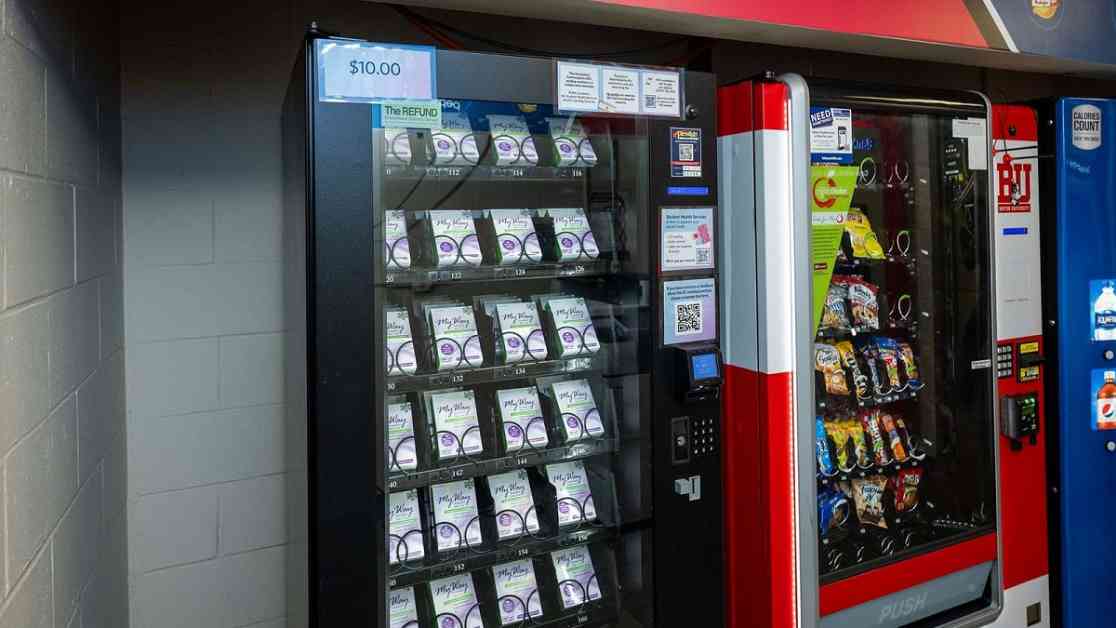A controversial bill advancing through the Maryland General Assembly is stirring up discussions on youth health, school policies, and parental rights. House Bill 380, which recently passed in the House of Delegates with an 89-41 vote, aims to overturn a long-standing state law that prohibits contraceptive vending machines on school grounds.
Spearheaded by Delegate Nicole Williams of Prince George’s County, the bill seeks to eliminate the criminal penalties currently associated with offering contraceptives through vending machines at schools. Presently, this action is considered a misdemeanor offense, carrying a hefty $1,000 fine per violation. If the bill is enacted into law, school districts will have the freedom to install vending machines without fear of legal repercussions, although it will not be mandatory.
Williams has taken a firm stand in support of the bill, emphasizing that it does not enforce a mandate but rather abolishes an outdated restriction. She reassured her fellow lawmakers that this change would not drastically alter school policies, but rather empower administrators to make their own choices in this matter.
“This is about eliminating a criminal penalty,” Williams emphasized. “We are not compelling any school to install these machines, but it is inappropriate for laws to treat access to contraception in schools as a criminal offense.”
Proponents of the bill argue that enhancing access to contraceptives can encourage safe sex practices, reduce unintended pregnancies, and lower rates of sexually transmitted infections among students. They stress that providing contraceptives does not promote sexual activity, but rather safeguards those who are already sexually active. Citing studies that demonstrate a correlation between contraception availability and decreased rates of teen pregnancy and STIs among young individuals, supporters advocate for the bill’s passage.
Despite the bill’s advocates, there has been significant pushback from critics, particularly in response to its application across all school levels, from elementary to high schools. Delegate Kathy Szeliga of Baltimore County has emerged as a vocal opponent, expressing concerns that the bill’s broad scope could pave the way for condom dispensers in elementary schools.
During the legislative deliberations, Szeliga and other Republican lawmakers introduced an amendment to restrict vending machines solely to high school campuses. However, this amendment was rejected by the House, prompting Szeliga to decry the bill’s expansive reach.
“Parents need to wake up,” Szeliga urged on social media, dubbing the bill the “Condoms for Kiddies” legislation. She criticized lawmakers for prioritizing ideology over practicality and cautioned that eliminating the penalty might inadvertently make contraceptives overly accessible to young children.
With the bill having secured approval in the House, it now proceeds to the Maryland Senate, where it has been referred to the Judicial Proceedings Committee. Senators will engage in debates over potential amendments, and if the bill progresses without alterations, it will advance to Governor Wes Moore’s desk for final ratification. Should the Senate propose amendments, the bill will circle back to the House for a conclusive vote.
The bill’s progression has triggered broader conversations about the role of schools in providing health resources to students. Advocates argue that schools are already engaged in health education and that the bill merely eliminates a legal obstacle preventing districts from taking further measures to safeguard students. On the other hand, opponents contend that decisions regarding contraception access should involve parents and caution that vending machines in schools could circumvent parental oversight.
As the bill navigates its way through the legislative process, it stands as a polarizing issue, eliciting strong viewpoints on how to strike a balance between student health, school regulations, and parental engagement.


















